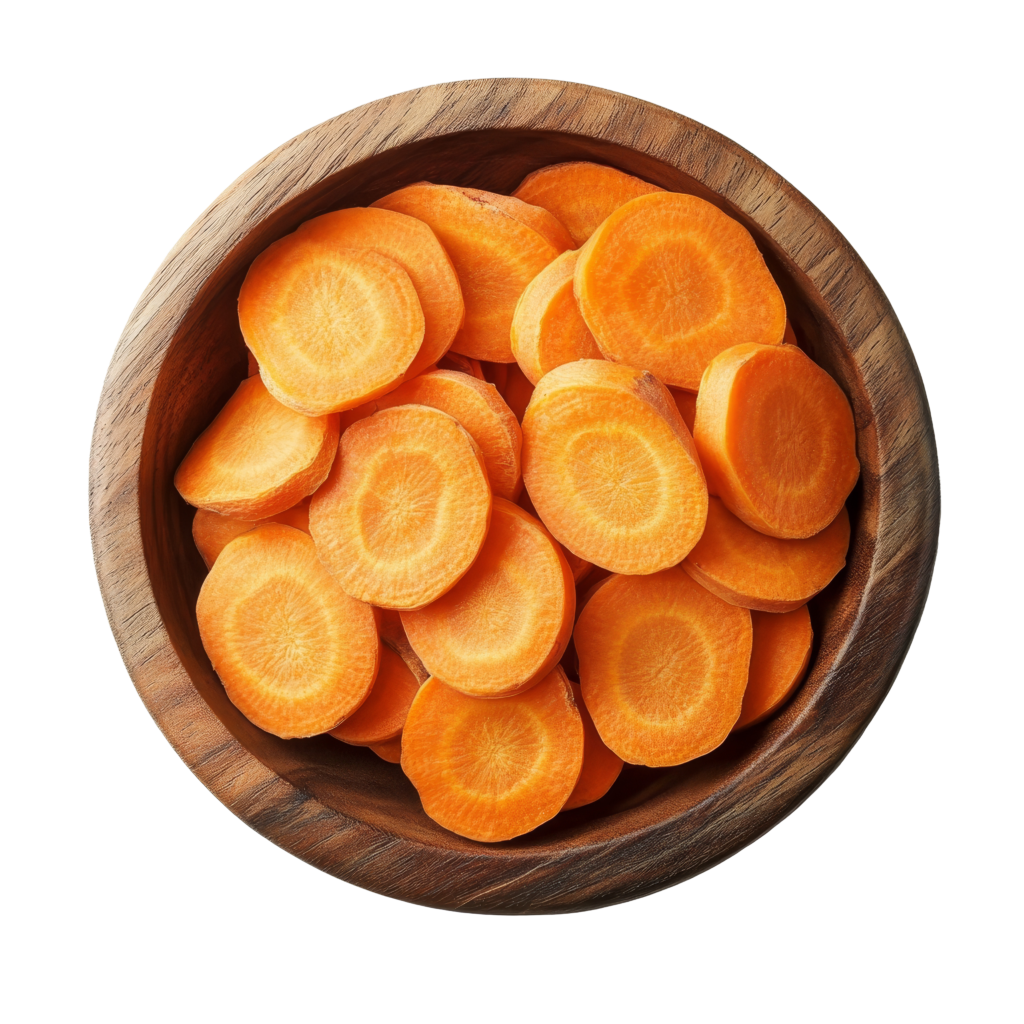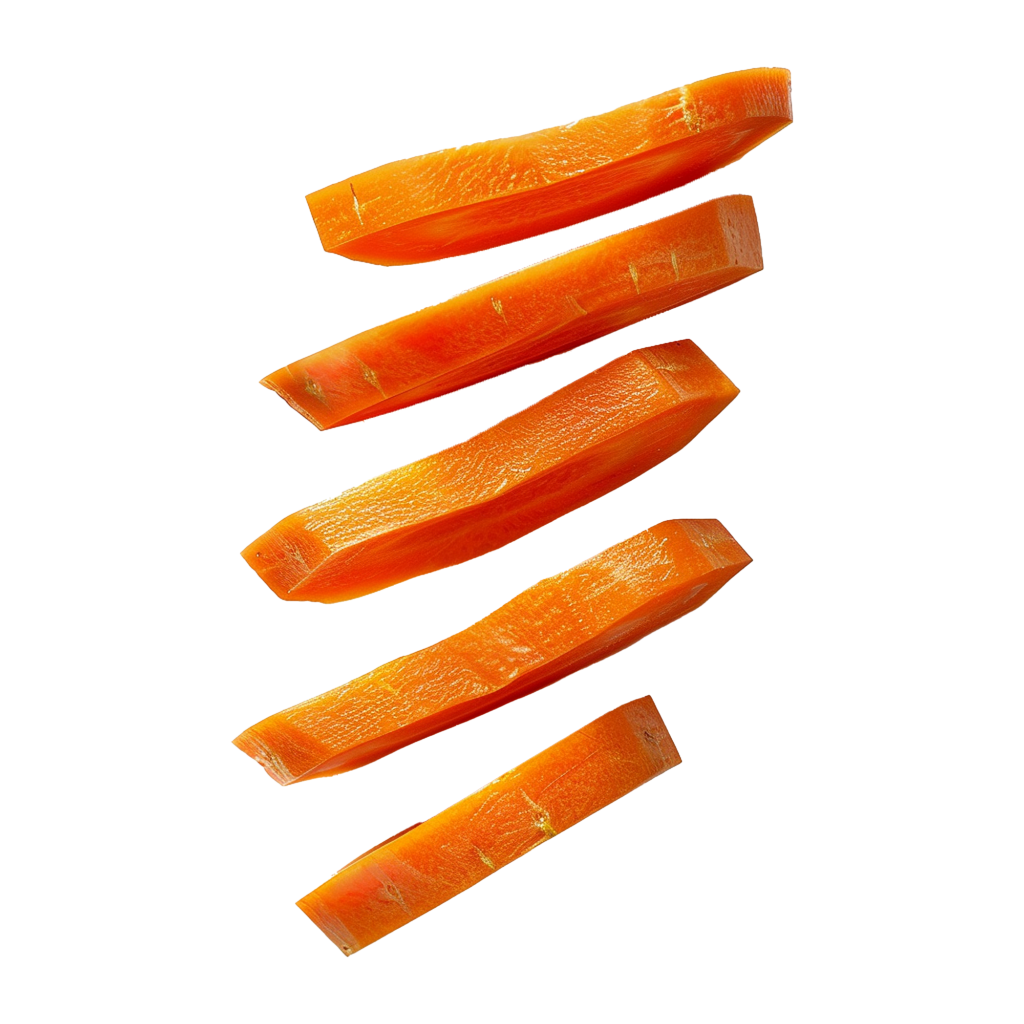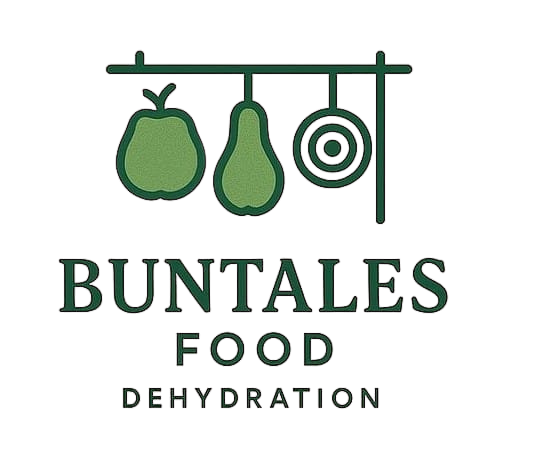
Dehydrated Carrot Chips
Dehydrated carrot chips are thin slices or curls of fresh carrots that have been dried using controlled heat (air-drying, vacuum drying, or freeze-drying) to remove moisture while preserving their nutrients, natural sweetness, and color. These chips offer a crispy, nutrient-rich snack or ingredient with a long shelf life and no need for refrigeration.
Key Features of Dehydrated Carrot Chips
| Attribute | Description |
|---|---|
| Form | Thin rounds, curls, or flakes (usually 2–4 cm) |
| Texture | Crunchy and crisp (varies by drying method) |
| Flavor | Mildly sweet and earthy, sometimes slightly nutty |
| Color | Bright orange to deep orange |
| Processing | Usually hot air-dried, vacuum-dried, or freeze-dried |
Types of Dehydrated Carrot Chips
- Plain / Unsalted – Used in health snacks and food processing.
- Lightly Salted / Spiced – Marketed as healthy snack alternatives.
- Freeze-Dried – Lightweight, with bright color and crisp texture.
Nutritional Value (per 100g, air-dried)
| Nutrient | Approximate Amount |
|---|---|
| Energy | 300–350 kcal |
| Carbohydrates | 60–70 g |
| – Sugars | 30–35 g (natural sugars) |
| Dietary Fiber | 10–12 g |
| Protein | 7–9 g |
| Fat | 0.5–1.5 g |
| Vitamin A (as beta-carotene) | 8,000–12,000 µg RAE |
| Vitamin K | 10–15 µg |
| Vitamin C | 20–30 mg |
| Potassium | 600–800 mg |
| Calcium | 80–100 mg |
| Iron | 1–2 mg |
Nutrient values vary slightly based on drying method and carrot variety.
Health Benefits
- High in beta-carotene, which supports eye health, immune function, and skin wellness
- Rich in fiber, promoting digestive health and satiety
- Antioxidant properties help reduce oxidative stress
- Supports heart health and healthy blood pressure (potassium content)
- Naturally low in fat and cholesterol-free
Common Uses
- Healthy snack alternative to fried chips
- Added to trail mixes, soups, or instant meals
- Ground into carrot powder for smoothies, baking, or baby food
- Used in salads, bento boxes, or school lunch packs
Summary:
Dehydrated carrot chips combine the natural nutrition of carrots with the convenience of a long-lasting, ready-to-eat form. Ideal for snacks, meal kits, or functional food products, they cater to consumers looking for clean-label, plant-based, and nutrient-dense options.

